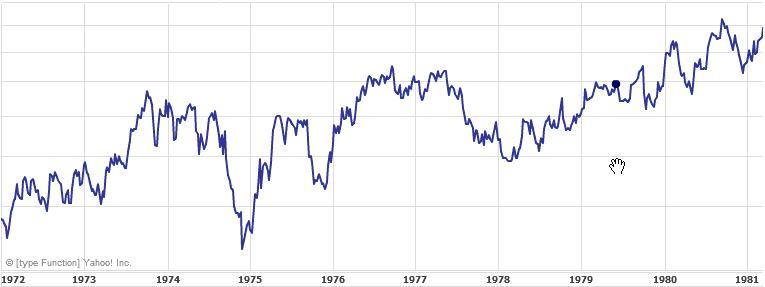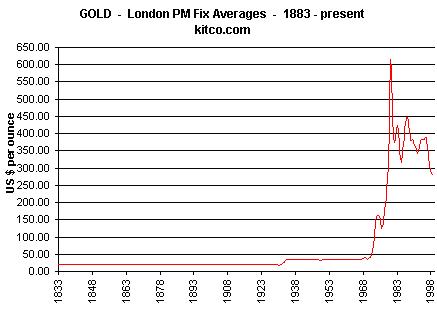
“Inflation is the one form of taxation that can be imposed without legislation.” – Milton Friedman
Today, I’m going to tell you how to make a lot of money.
If you are (a) not happy with the 0.5% return you are getting from your bank account, (b) worried about inflation, or (c) uncertain about the future value of your stocks and bonds, pay attention.
In fact, you might want to keep this issue of the Journal around so you can thank me later.
Despite what Timothy Geithner and so many of the other media and government squawkers are saying, the U.S. economy is not returning to health. Businesses will continue to go bankrupt, homeowners will continue to lose their homes, and unemployment will continue to rise.
The financial markets are becoming more precarious. Stock market indexes are up since March of 2009, but PE ratios are now standing at about 24 — which means that most stocks are 40% to 50% overvalued. The bond market is overvalued too.
It’s enough to make you want to stay in bed all day.
But today, I am going to give you a user-friendly game plan for financial success. It is a three-part strategy for protecting whatever wealth you have left and building wealth, starting immediately, over the coming decade.
It is a program that is based on demonstrable logic and proven business experience.
I’m not going to charge you for this plan. You are getting it for free.
If you decide to follow through on my suggestions, I will recommend some additional sources of information that will help you succeed. Buying them will be optional. But the strategy itself will still be free.
How to Protect Against the Threat of Inflation
The biggest single threat to your wealth is not the overvalued stock and bond markets but the very likely probability of a sudden and ruthless period of inflation.
You don’t have to be an economist to understand why.
Inflation means rising prices. When the stock market went up from below 700 in March 2009 to 1,200 in April 2010… that was stock inflation. When home prices rose by 80% from 1997 to 2006… that was real estate inflation.
You can make a lot of money during inflationary periods if you buy early (while prices are low) and sell later (when prices are high). But you can get killed if you wait too long and buy late (when prices are high) and then are forced to sell (when prices are low).
So the trick to profiting from inflation is to understand the trend. Getting in early and getting out early.
Pretty simple so far, eh?
The reason the smartest moneymakers in the world are expecting inflation now is because the government has been spending trillions of dollars to try to keep the banks and brokers and insurance companies from going out of business — even though those same banks and brokers and insurance companies are responsible for inflating the economy to begin with.
The government will never, ever allow these institutions to “fail.” Because if they do, we will be in a real Depression… and then all the politicians we voted into office will worry about losing their jobs. Since their cushy jobs (and amazing expense accounts) are their primary priority, they will always approve these huge bailouts — even though they know that, eventually, they will destroy the value of the dollar.
It doesn’t matter what party they belong to. The Republicans started the bailout programs and the Democrats extended them. They fight about spending on health care, but they don’t fight when it comes to the big financial institutions.
The government didn’t actually have the trillions of dollars they spent on bailouts. They had to borrow it from the U.S. Treasury.
And how do they pay back the U.S. Treasury? There are only two ways. One is by raising taxes; the other is by printing more dollars.
Countless economic studies have shown that there is only so much money the government can get by raising taxes. If they tax people too much, the economy slows down. And when the economy slows down, there is less wealth to tax… so the government’s income actually drops rather than rises.
Obama knows that he probably wouldn’t be able to raise taxes enough to pay off the debt incurred by the bailouts. Still, he is going to try to tax Americans as much as he possibly can.
Where will the rest of the money come from?
Obama also knows — as does every other smart politician — that there is a sneakier and less risky way to pay back the Treasury. And that is to let the dollar collapse.
Here’s why: When the dollar depreciates (gets less expensive), it becomes easier to pay off big debts. Who wouldn’t want to be using today’s dollars to pay for gas that went for $1.50 10 years ago? Or to pay for houses that went for $75,000, on average, 20 years ago? Well, that’s what the government will be doing 10 years from now: paying off a debt that won’t seem nearly as big as it does now because they’ll be paying with inflated dollars.
My Three-Point Plan
Traditionally, there are three types of assets that appreciate during periods of inflation. One is real estate. Another is precious metals. And the third is stocks that are related to commodities.
From 1972 to 1981, Alcoa’s Stock More Than Doubled

And gold’s best decade of the 20th century is no contest. It spiked during the hyper-inflationary 1970s, as you can see in this chart…

Since I don’t have the space to go into detail on all three parts of my inflation-beating strategy today, I’ll focus on the real estate opportunities. I’ll talk about precious metals and commodities in a future issue.
Real estate is a good place to start. Hundreds of billions of dollars will be made in real estate by the smart money in the next five to 10 years. My cut of that should be at least $10 million. Perhaps you’d like to join me.
Your Real Estate Plays
It’s no secret that half of the world’s richest entrepreneurs built their fortunes through real estate. What is less commonly known is that most of their great fortunes were made during inflationary periods… like the one we’re facing right now.
Opportunity #1: Taking advantage of real estate prices that are as low as they’ve been in 20 or 30 years
It is impossible (and foolish) to try to predict the bottom (or top) of this (or any) market. But, by any measure, we have just gone through one of the biggest real estate recessions in the history of the United States.
In South Florida, for example, you can find properties for less than half of what they were selling for at the peak of the market. More important, you can buy these properties with 20% down and start enjoying positive cash flow from month one. (Four and five years ago, you couldn’t get positive cash flow out of rental units with 50% down.) So today’s prices make sense from a businessman’s perspective.
My real estate partner Peter and I have been buying homes in the $120,000 to $130,000 range (after closing costs and renovations). We are getting monthly rents of $1,300 to $1,600 on these. I am financing our deals at 4% (which is good for me). At that rate, we are making about 6% to 8% on our money, not counting appreciation.
My brother is buying up residential properties and apartment complexes in lively downtown areas, beach areas, and areas targeted for “stimulus money” renovation. He is buying at such deep cash flow prices that he is able to pay his investors (including me) minimum guaranteed yields of 7.5% plus equity participation. Because of this, he has raised a considerable amount of money in the last few months, and he is using the money to do some very impressive deals.
He just bought a 14-unit building across the street from the beach for $725,000! Think of that. Each beach-view, one-bedroom unit cost him only about $50,000 — and this apartment complex could be worth several million in the not-too-distant future. He also now controls three properties in the heart of a rapidly growing downtown, zoned commercial and residential. And even though they’re in a prime spot, he is generating yields of over 8%.
Whether with Peter, through my brother, or by myself, I will continue to invest in real estate so long as prices are low. If they go down further, I’ll buy more aggressively. I have no risk of losing money, because all the properties I’m investing in are making money on a monthly basis. Even if rents drop, I won’t be losing money. The 4% to 8% yield I’m enjoying will cover me even if rents go down another 25%, which is highly unlikely.
I get immediate income from these deals. Instead of getting 0% on my cash, I’m getting a minimum of 7.5% fully secured guaranteed yields by loaning it to my brother, and additional yield from the “after-debt” cash flow.
But the real opportunity is in the appreciation potential. As I said, I fully expect to make an extra $10 million in appreciation in the next five to 10 years as inflation pushes up real estate prices. I might make as much as $30 million, but I’m trying to be conservative.
There are some who say that real estate prices won’t inflate with the rest of the economy, but I think they will. Here’s why. Buildings are built with core commodities… lumber, copper, aluminum, concrete, steel. Labor is another big expense. You can’t have inflation without a rise in those costs.
Plus, as my brother points out, properties in many areas are selling for less than replacement value. In some cases, even if you got the land for free, you couldn’t build these homes for what you can buy them for today. That’s even after taking depreciation into account.
Last but not least, in many instances, it’s already far cheaper to buy than it is to rent. Eventually, this will turn the tide toward buying. It’s just a matter of time.
So that’s my first inflation-beating recommendation: Start buying undervalued, quality rental properties now. Don’t wait for the market to bottom. Just find properties that will give you a net cash flow of at least 4% to 9% after all expenses (including property taxes, maintenance, fees, etc.).
…..read Opportunity #2 and #3 HERE
